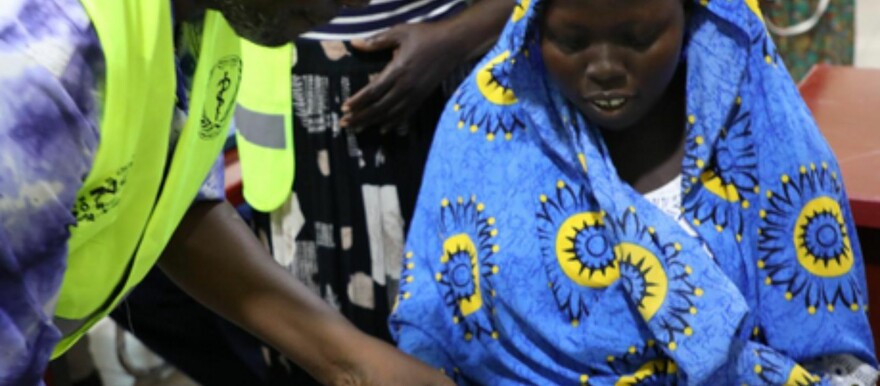The Eastern Equatoria State health ministry and international partners on Wednesday launched a campaign to check the resurgence of measles, Vitamin A deficiency, and to deworm children across the state.
The World Health Organization (WHO) and United Nations Children’s Fund (UNICEF) are part of the campaign which will run for a week and will target children aged six months to five years.
Speaking during the launch in Torit, the acting director general at the state ministry of health, Dr. Elijo Omoro Tahir, urged parents to take their children to the vaccination centers, saying the vaccine is safe and protects children against measles.
“Today we are launching the integrated measles follow-up campaign 2023 because there has been an outbreak of measles in the country which has necessitated this campaign,” he said. “The campaign will be for all children from 6 to 59 months and they should all be vaccinated. The target is about 316,061 children.”
“We shall also be administering vitamin A and deworming tablets and that is why it is called an integrated campaign,” Dr. Omoro added.
For his part, WHO’s representative at the launch, Dr. Amin Gordiano, said the campaign is timely following the outbreak of measles and other childhood diseases in several states across South Sudan.
He said parents have a responsibility to save the lives of their children by ensuring that they are fully vaccinated against childhood diseases.
“Measles is a killer disease and when it affects a child it can cause blindness or diarrhea if the child is not rushed to the hospital. Vaccination is the only solution to prevent the disease,” he said. “This campaign is for children aged 6 months to 5 years. Those below 6 months have some protection from their mothers but will have to be brought to the centers to get routine vaccination for polio, pentavalent, and others before getting the measles vaccine in 9 months.”
Meanwhile, the state’s acting health minister, Margret Idwa Okuye, said more sensitization is required across villages to create awareness about measles and the vaccination campaign because many communities opt for traditional treatment.
“I think there is a need to create awareness in some areas because people deprive children affected by measles by not giving them nutritious food,” she said. “They do not give them oil or milk so we need to educate our people that they can feed children suffering from measles all healthy foods.”
“I do not know who told our people that you have to rub ashes all over children afflicted by measles,” Idwa added.
Torit Municipal Council Deputy Mayor Lopeta Philemon urged the state health ministry and its partners to roll out the campaign to schools as well.
“We are all ambassadors and are going to disseminate the information that measles is a dangerous disease,” he said. “The vaccines should be taken to schools as well.”




